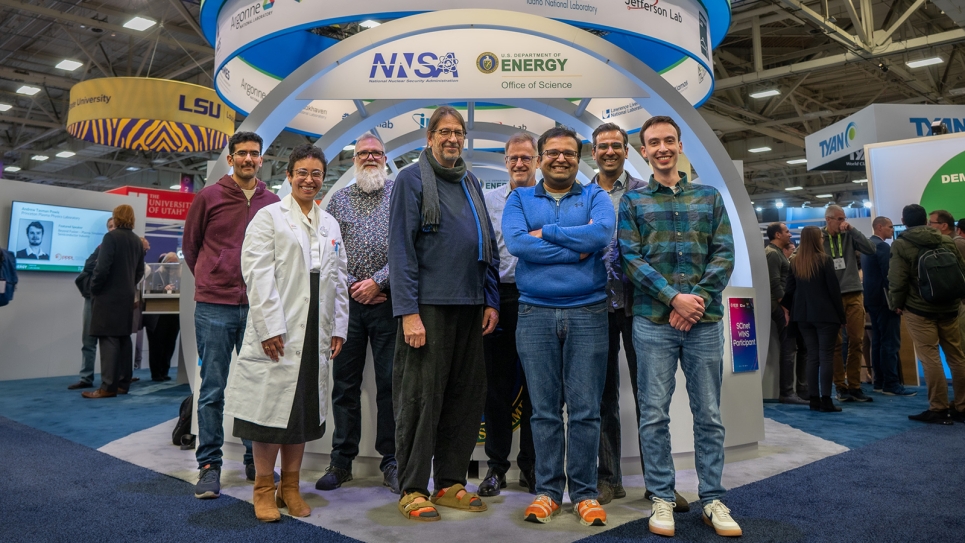
Members of the GenSLMs team gather in front of the U.S. Department of Energy's booth at the SC22 conference.
With help from ALCF computing resources, the team developed the first genome-scale language model to study the evolutionary dynamics of SARS-CoV-2.
A multi-institutional team led by the U.S. Department of Energy’s Argonne National Laboratory was awarded the ACM Gordon Bell Special Prize for HPC-Based COVID-19 Research at the SC22 conference this week.
The team, which also included researchers from the University of Chicago, NVIDIA, Cerebras Systems, University of Illinois Chicago, Northern Illinois University, Caltech, Harvard University, Arizona State University, and Technical University of Munich, was recognized for their efforts to create the first genome-scale language models (GenSLMs) for understanding the evolution of SARS-CoV-2. Their research has the potential to transform how scientists identify and classify new and emergent variants of SARS-CoV-2 and other pandemic-causing viruses.
The researchers used the Argonne Leadership Computing Facility’s (ALCF) Polaris supercomputer, the Cerebras CS-2 system in the ALCF AI Testbed, and NVIDIA’s Selene supercomputer to support their groundbreaking work to employ large language models to track genetic mutations in SARS-CoV-2 and predict variants of concern. The ALCF is a DOE Office of Science user facility.
“This was an amazing team effort,” said Michael Papka, ALCF Director and a contributor to the study. "The team's innovative work gives us a glimpse into the future where the integration of HPC and AI resources will continue to enable exciting new science opportunities and outcomes."
Learn more: